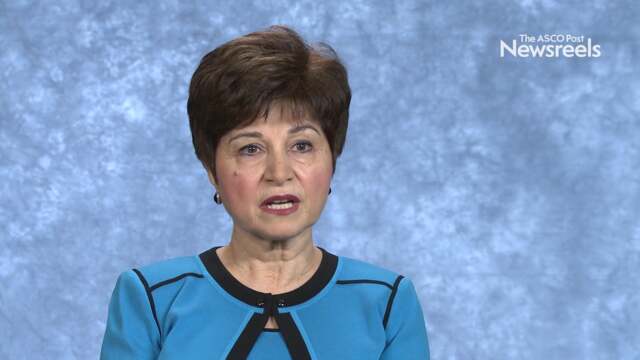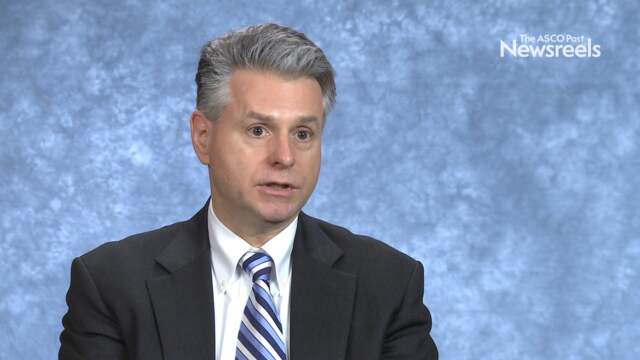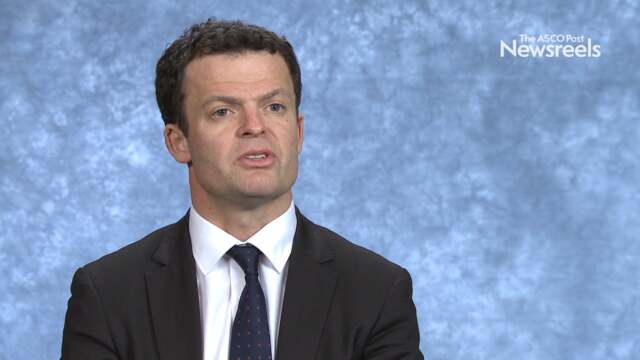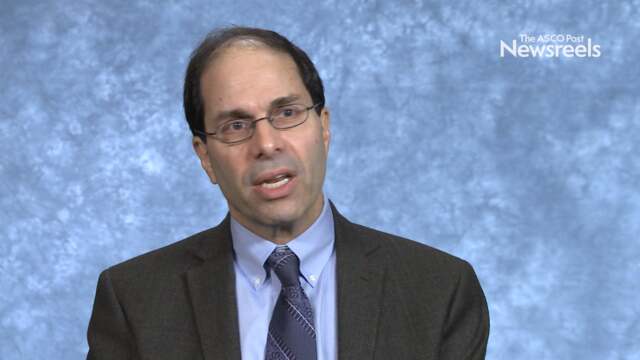Paul L. Nguyen, MD, on Prostate Cancer: Abstract Roundup
2018 Genitourinary Cancers Symposium
Paul L. Nguyen, MD, of the Dana-Farber Cancer Institute, summarizes a session he chaired on prostate cancer, which included discussion of daily vs weekly image-guided radiotherapy; a biomarker to predict biochemical failure and metastasis; a comparison of abiraterone or enzalutamide activity; and the impact of 18F-fluciclovine PET/CT on clinical management choices for men with biochemically recurrent disease (Abstracts 4, 5, 164, 165).
Maha Hussain, MD, of Northwestern University, discusses phase III findings on enzalutamide in men with nonmetastatic castration-resistant prostate cancer (Abstract 3).
John J. Coen, MD, of 21st Century Oncology, discusses phase II study findings on selective bladder preservation with twice-daily radiation plus fluorouracil/cisplatin or daily radiation plus gemcitabine for patients with muscle-invasive bladder cancer (Abstract 408).
Thomas Powles, MD, of Barts Cancer Institute, discusses phase III study findings on atezolizumab vs chemotherapy in platinum-treated locally advanced or metastatic urothelial carcinoma, with an emphasis on immune biomarkers, tumor mutational burden, and clinical outcomes (Abstract 409).
Daniel J. George, MD, of Duke University Medical Center, discusses study findings on cabozantinib vs sunitinib for previously untreated patients with advanced renal cell carcinoma of intermediate or poor risk, in a subgroup analysis of progression-free survival and objective response rates (Abstract 582).
Eric J. Small, MD, of the University of California, San Francisco, discusses phase III findings on apalutamide vs placebo in patients with nonmetastatic castration-resistant prostate cancer (Abstract 161).





